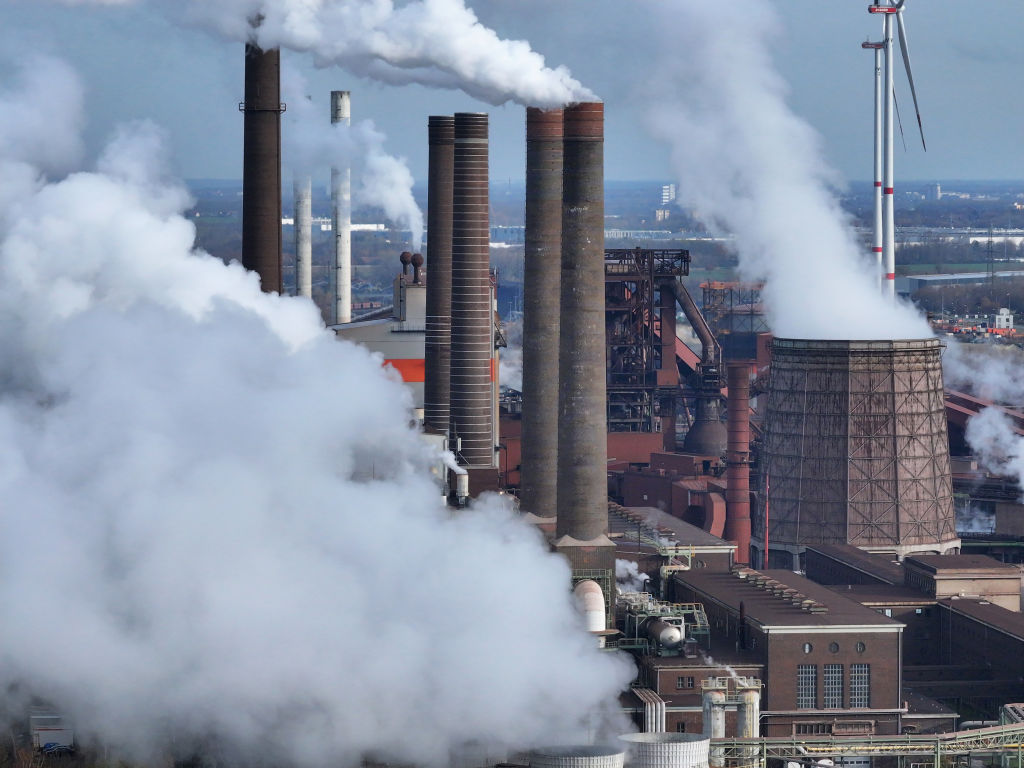Jonas Grafström, an economic researcher and visiting fellow at the Oxford Institute for Energy Studies, has written a highly critical report on the European Union’s industrial policy for the Environment and Public Health Institute (EPHI), a Swedish think-tank that advocates for the free market and free research.
Based on the collapse of the Sweden-based Northvolt battery company in late November, where European taxpayers lost more than €300 million, Grafström discovered the firm was not alone regarding questionable similar investments in Europe.
According to a December 10 press release, the report stated the EU was on the wrong page, with Grafström warning that Brussels “cannot and should not be picking winners and losers”.
In 2019, the EU’s Green Deal promised climate leadership, innovation and prosperity. Today, the EU has a significant body of regulations relating to the Green Deal, the report noted, while regarding technology, prosperity and job creation, the EU lagged far behind the US and China.
The EU’s economy evolved from being 10 per cent larger than the US 15 years ago to 23 per cent smaller by 2022.
While the EU’s GDP grew by 21 per cent over this period, the US expanded by 72 per cent and China surged by 290 per cent, with recent growth projections further highlighting the EU’s stagnation.
According to Brussels, the Clean Industrial Deal, European Commission President Ursula von der Leyen’s flagship for the next four years, promises to push Europe towards prosperity but in his report, Grafström revealed his doubts.
The European Commission has announced it will be pumping more cash into electric vehicle battery technology despite losing hundreds of millions on the now-bankrupt Northvolt project. https://t.co/b48ky1FmZG
— Brussels Signal (@brusselssignal) December 4, 2024
He pointed to what he called “the dangers of a revival of vertical industrial policy (picking winners and opening up for rent-seeking)” and stated that “the environment needs profitable firms to find solutions”.
“Regardless of whether you are for or against active industrial policy, it certainly seems a very poor business case to prop up an industry based on mid-range technology, where the economics of scale play a fundamental part, and where global demand can already be met by non-European firms supported by heavy subsidies,” he wrote.
“If the EU is to pick winners, which in itself is a highly questionable policy, we must leverage our own comparative advantages, not copy China.”
Referring to the internal combustion engine, he said, “We also ask ourselves, is it sustainable policy to ban the product of an industry which is at the core of European prosperity? Does it strengthen our competitiveness and prosperity? For us, the answer is no.”
Rather than its current trajectory, Grafström recommended a different economic policy direction.
He suggested investing “smart”, where the EU was, according to him, already in the lead, cut taxes, reduce regulations, raise the energy output, support R&D. In addition he said there was a need to foster public-private partnerships, ensure fair competition, improve the energy infrastructure and end the ban on the combustion engine, a ban he called “useless anyway”.
Rather than “big government”, intervention and state subsidies, Grafström looked to the market for solutions.
“By promoting policies that encourage competition, innovation and entrepreneurship, we can build a greener and more prosperous future,” he wrote.
“Industrial policy should enable companies to thrive and innovate, not distort markets with unnecessary subsidies and protectionist measures. As Europe continues its industrial transformation, it is crucial to create an environment where profitable companies are the ones driving change, for they are the ones that will last.”
“Effective industrial policy requires the ability to let failing projects go, rather than propping them up indefinitely,” Grafström said.
Reacting to the report, Marie Söderqvist, CEO of the EPHI, said the conclusion was “clear”.
“The EU’s active industrial policy, which is based on the idea that the ‘right’ types of companies can receive support, subsidies, and state guarantees, is the wrong way forward,” she said.
“Politicians can set the rules of the game and ensure that there are good conditions for running businesses, but they should not decide which sectors and companies should be supported.”
“This undermines the entire free and business-friendly market that has built Europe’s prosperity.”
Rather than being an independent green innovator, Northvolt uses old Chinese technology, with 20-year-old equipment that was already out of date when put in place. https://t.co/oCI3Guhuj5
— Brussels Signal (@brusselssignal) October 9, 2024





